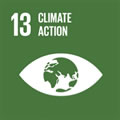Por favor, use este identificador para citar o enlazar a este item:
http://hdl.handle.net/10261/323268COMPARTIR / EXPORTAR:
 SHARE SHARE
 CORE
BASE CORE
BASE
|
|
| Visualizar otros formatos: MARC | Dublin Core | RDF | ORE | MODS | METS | DIDL | DATACITE | |

| Título: | Global proliferation of cephalopods |
Autor: | Doubleday, Z.A.; Prowse, T.A.A.; Arkhipkin, Alexander; Semmens, Jayson; Steer, Michael; Leporati, S.C.; Lourenço, Sílvia; Quetglas, Antoni CSIC ORCID; Sauer, Warwick; Gillanders, B.M. | Palabras clave: | Pesquerías Centro Oceanográfico de Baleares abundance trends long-term time series fishing Climate change marine food webs |
Fecha de publicación: | 23-may-2016 | Editor: | Elsevier | Citación: | Current Biology, 26(10) : R406-R407 (2016) | Resumen: | Human activities have substantially changed the world’s oceans in recent decades, altering marine food webs, habitats and biogeochemical processes. Cephalopods (squid, cuttlefish and octopuses) have a unique set of biological traits, including rapid growth, short lifespans and strong life-history plasticity, allowing them to adapt quickly to changing environmental conditions. There has been growing speculation that cephalopod populations are proliferating in response to a changing environment, a perception fuelled by increasing trends in cephalopod fisheries catch. To investigate long-term trends in cephalopod abundance, we assembled global time-series of cephalopod catch rates (catch per unit of fishing or sampling effort). We show that cephalopod populations have increased over the last six decades, a result that was remarkably consistent across a highly diverse set of cephalopod taxa. Positive trends were also evident for both fisheries-dependent and fisheries-independent time-series, suggesting that trends are not solely due to factors associated with developing fisheries. Our results suggest that large-scale, directional processes, common to a range of coastal and oceanic environments, are responsible. This study presents the first evidence that cephalopod populations have increased globally, indicating that these ecologically and commercially important invertebrates may have benefited from a changing ocean environment | URI: | http://hdl.handle.net/10261/323268 | DOI: | 10.1016/j.cub.2016.04.002 | ISSN: | 0960-9822 | E-ISSN: | 1879-0445 |
| Aparece en las colecciones: | (IEO) Artículos |
Ficheros en este ítem:
| Fichero | Descripción | Tamaño | Formato | |
|---|---|---|---|---|
| Doubleday et al 2016.pdf | 317,79 kB | Adobe PDF | Visualizar/Abrir |
CORE Recommender
SCOPUSTM
Citations
215
checked on 26-abr-2024
WEB OF SCIENCETM
Citations
192
checked on 27-feb-2024
Page view(s)
31
checked on 06-may-2024
Download(s)
10
checked on 06-may-2024
Google ScholarTM
Check
Altmetric
Altmetric
NOTA: Los ítems de Digital.CSIC están protegidos por copyright, con todos los derechos reservados, a menos que se indique lo contrario.


